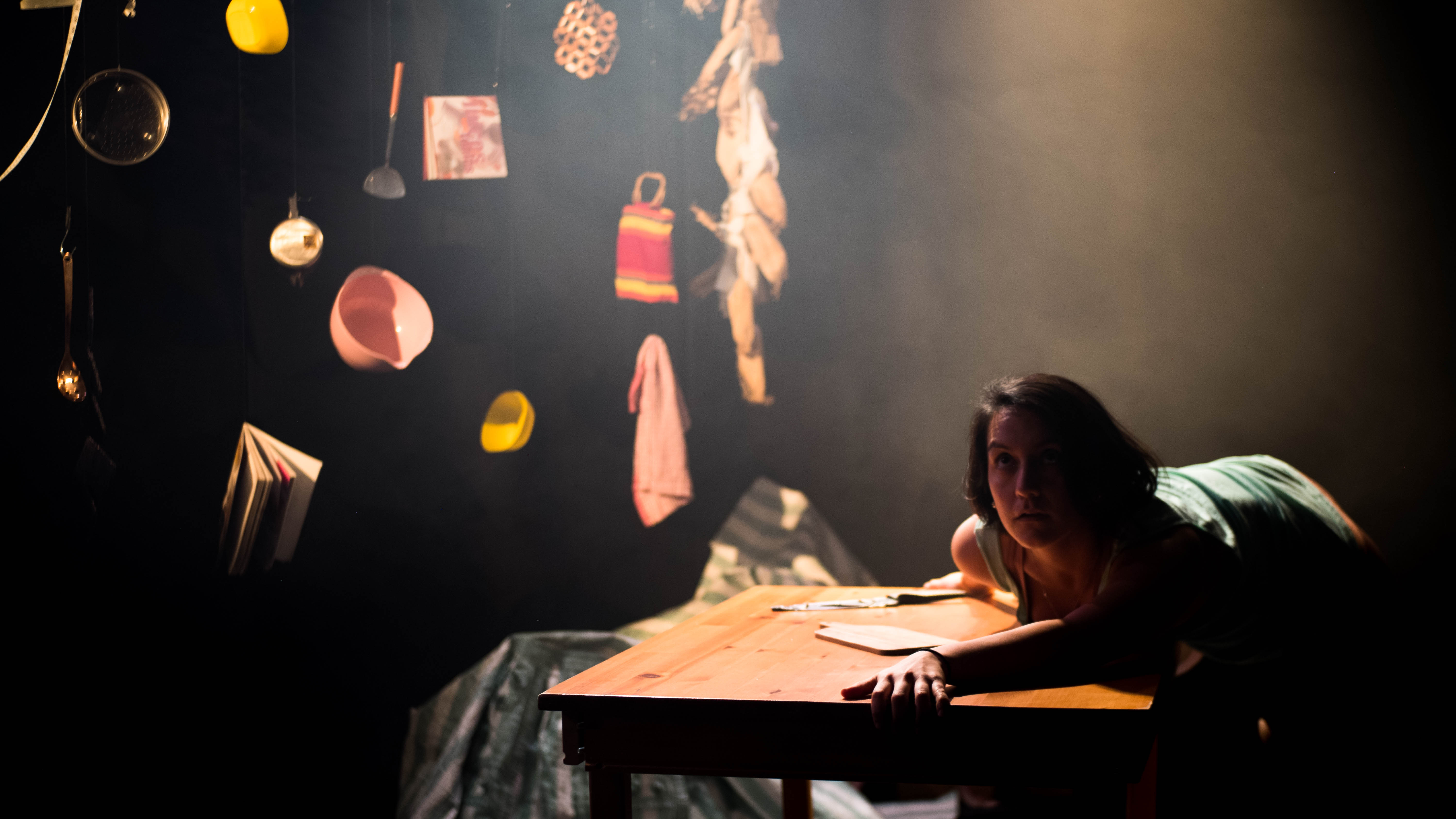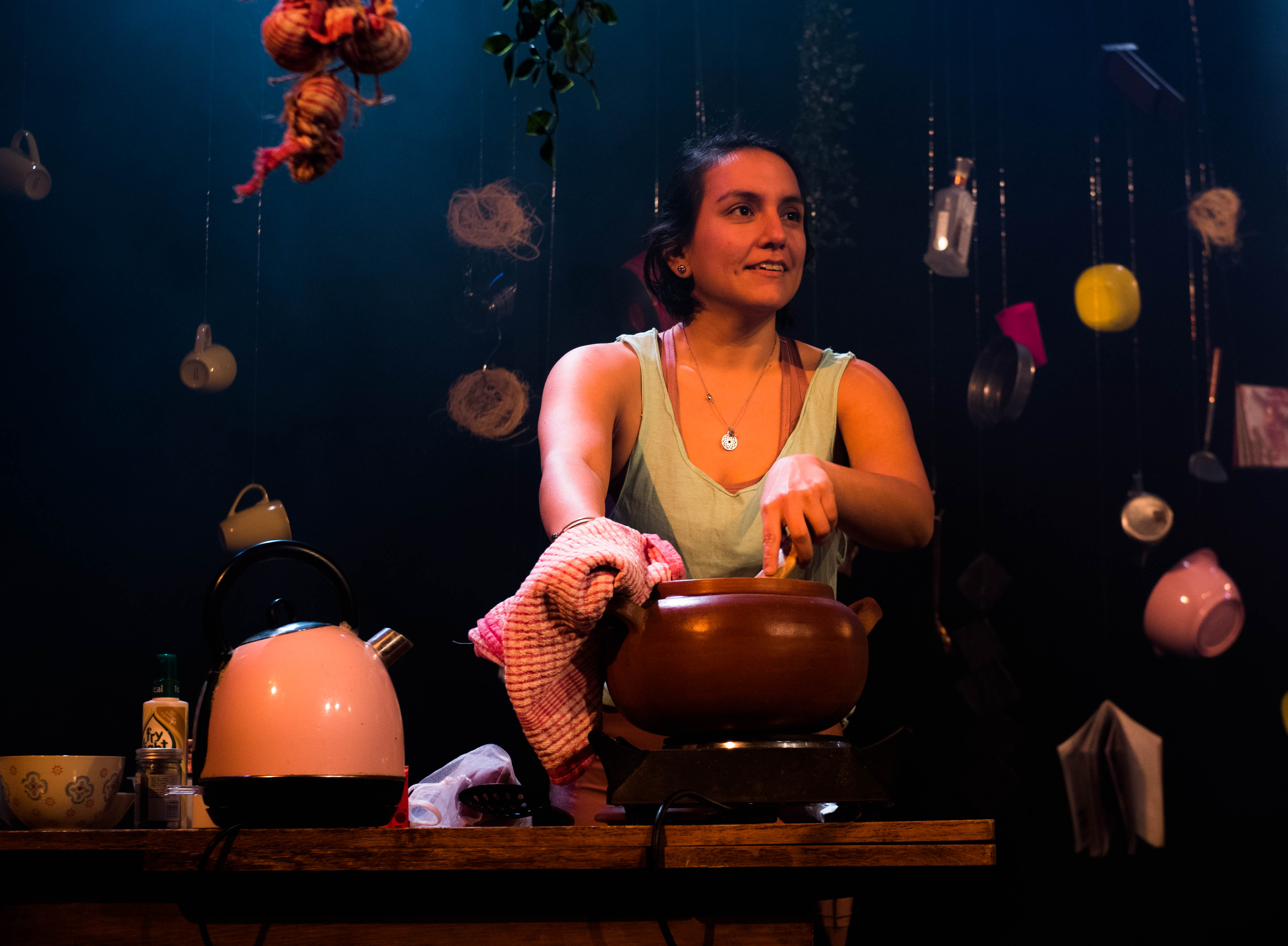From Lima Peru, and living in London for 5 years, Pepa Duarte is an an actor, theatre maker, a physical performer, who writes and also run workshops.
LatinoLife: Why did you decide to devise a play based on food?
Pepa Duarte: Food is the core of the story of play, so I’ll try not to reveal too much. It has to do with my own experience with food: an experience I had throughout my life of what eating meant for me. This didn’t mean much, at first. When I moved here, when people found out that I was Peruvian, those that were family with our cuisine assumed that I would be a foodie. But I wasn’t. So, I started to question not only why I didn’t consider myself to be a foodie, but also why I didn’t really love food. This opened up an array of questions about womanhood: who society thinks we are, the pressures on us to have certain desires or look a certain way. It started to open up to a lot of personal yet universal thoughts that I wanted to share with an audience. I didn’t know this before, but this relationship with food is a very common experience.
LL: What’s the connection between food and identity and food and femininity for you?
PD: Food is a symbol like hair and when it stops being that, it creates a very conflictive and harming relationship with people. In my culture, food is that special moment when family would be around and it would include laughter, sharing, time, and care. In Peru, something is very central and we are well-known in the world because of it. This conflicted with my personal experiences.
I started to encounter that, even among women who refused to talk about their relationship with food, they had required a particular relationship with food that was attached to freedom. By that I mean, what does it mean as a person to be free to eat whatever you want? To constantly have, in the back of your head, will this make me gain weight or not? Do I care or not? And both positions are still a place in which we women are expected to situate ourselves. Whereas men have the freedom of not really taking part in this conversation of caring or not caring about food. I, therefore, felt that food was politically intertwined in so many ways.

LL: Do you think that there is something unique about the South American experience of food?
PD: Obviously, cultures do vary but I think that we have a particular love for family in Latin America. But I do think that there is a crossover with so many other cultures. We learn that we are all different and we push on our differences when I think that, actually, all cultures function the same way. We all come from our families and there is always a strong and intense relationship, it might not be healthy and happy but, nonetheless, it’s the centre of our lives. The same applies with food. It may be that, in your house, nobody really cooks for you but that already creates a scar or something that will be part of your identity. I think that in Latin American culture, food is very important and people do value flavour and experimenting, as well as the rituals that happen around food. I think that other cultures experience the same intensity around those themes but we do also have our own ways. But politically, I’d like to reinforce the fact that we are all the same.
LL: How did you avoid unintentionally reinforcing stereotypes about food and women or food and Latin America in the play?
PD: I think most of my work comes from a place of honesty. Although I don’t want my work to be all about me, it is an excuse to tell my story. Since it is something so particular, my experience of life, then naturally it’s not a stereotype because I’m opening to something that has layers and complexity. My intention is to see how far we can go beyond those stereotypes. We need to try to go beyond those impositions and boxes that people have tried to transpose on us to find our truth. I think the play shows a very particular experience of life and hopefully, this can open people’s minds to who a Latin American person can be and how different we are from one another.















